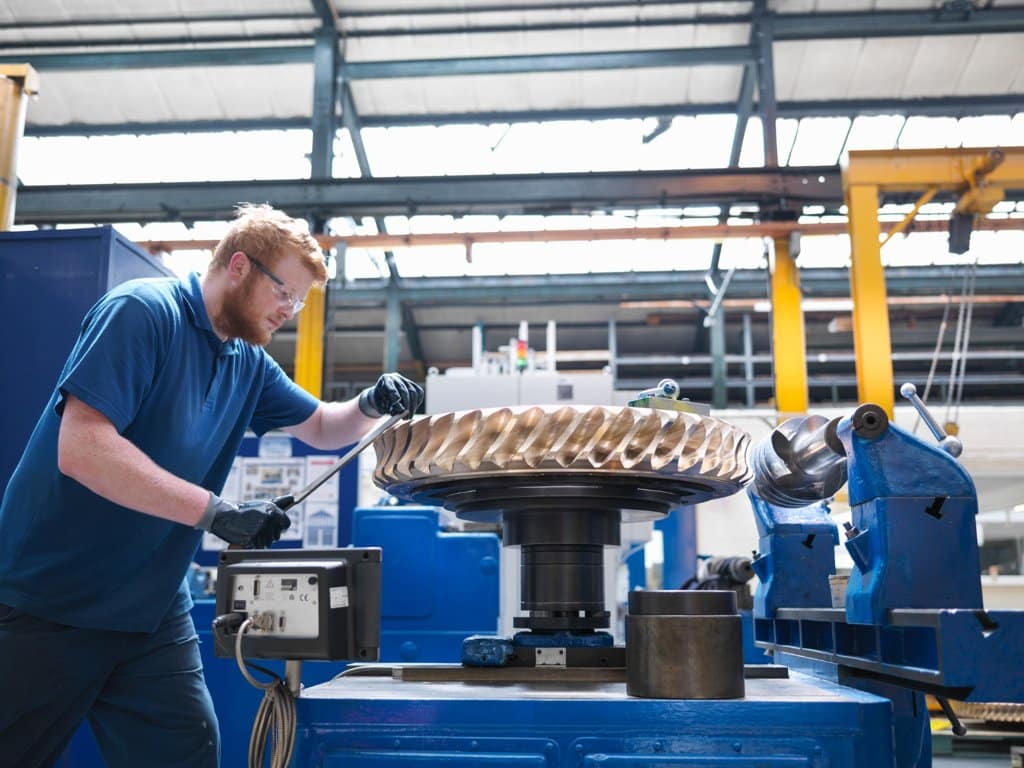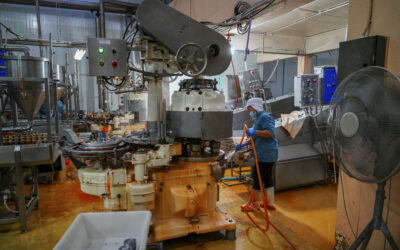Introduction: Why Many Manufacturers Are Worried in 2025
The manufacturing industry is at a turning point. By 2025, manufacturing leaders face mounting pressure from tariffs, supply chain instability, and ongoing labor shortages. Many executives admit they are worried in 2025, yet digital transformation offers a clear path forward.
Smart factories and MES (Manufacturing Execution Systems) have become essential for manufacturing businesses that want to increase manufacturing capacity utilization, achieve sustainable growth, and remain competitive in global markets.
This article explores the most important manufacturing industry trends of 2025 and explains how smart technologies, MES software, and 3D printing technology are reshaping production for both large manufacturers and smaller players.
What Is a Smart Factory?
A smart factory is a fully connected, data-driven ecosystem that integrates IoT, AI, MES software, and real-time analytics into daily operations.
Core benefits include:
- Continuous data collection across processes
- Real-time visibility into production performance
- AI-driven insights for predictive decision-making
- Seamless integration with ERP and supply chain
From automotive to construction, smart factories enable many manufacturers to achieve higher efficiency and flexibility while reducing waste.
Digital Transformation: A Strategic Priority
Digital transformation is no longer optional—it is a survival strategy. By 2025, companies investing in MES and smart factory software are:
- Cutting costs through process automation
- Increasing productivity despite labor shortages
- Improving quality with live monitoring
- Aligning operations with ESG goals
For manufacturing leaders, digitalization is the most effective way to balance profitability and sustainability.
Key Drivers Behind Manufacturing Industry Trends
Several forces explain why industry trends now converge around smart factories:
- Global tariffs and competition drive efficiency gains
- Pressure to achieve carbon neutrality
- Workforce gaps pushing automation adoption
- Advances in AI, IoT, and edge computing
These factors explain why many manufacturers are accelerating their digital journey, despite being worried in 2025 about costs and disruptions.
Manufacturing Leaders’ Priorities in 2025
Overcoming Labor Shortages
Smart factories reduce dependency on scarce human labor by deploying , robotics, and automated quality inspection.
Navigating Tariffs and Trade Barriers
Large manufacturers are localizing supply chains and using MES-driven forecasting to anticipate the impact of tariffs.
Driving Sustainable Growth
Green manufacturing initiatives are no longer optional. With MES, companies monitor energy consumption, reduce waste, and ensure sustainable growth.
Emerging Manufacturing Trends 2025
Automation and Robotics
Cobots are now standard on assembly lines, increasing manufacturing capacity utilization.
Additive Manufacturing & 3D Printing Technology
From aerospace to construction, additive manufacturing allows many manufacturers to prototype faster, customize products, and cut costs.
Customization and Flexibility
MES software enables rapid product line changes, allowing factories to deliver niche products while remaining competitive.
How Technology Is Revolutionizing Industry
IoT and AI in Production
IoT sensors feed data into AI models that predict failures and optimize scheduling.
Digital Twins in Manufacturing
Digital twins let manufacturing businesses simulate improvements before implementation, saving time and resources.
Cybersecurity Concerns
With higher connectivity, protecting MES, IoT, and ERP systems is a top concern for manufacturing leaders.
MES Software: Core to Manufacturing Growth
Evolution of MES
Modern MES platforms now support:
- Energy efficiency tracking
- Predictive maintenance
- Real-time KPI dashboards
- ESG and sustainability metrics
MES + IoT + ERP Integration
MES acts as the bridge between shop-floor operations and business planning, improving agility and resilience.
Real-Time Data Analytics
Analytics embedded in MES provide actionable insights that accelerate decision-making.
Real-World Use Cases
- Food Manufacturing: A European plant boosted productivity by 29% with MES adoption.
- Automotive: Large manufacturers improved traceability and reduced downtime with MES.
Best practices:
- Start with pilot projects
- Focus on ROI-based KPIs
- Engage employees early
The Workforce in Smart Manufacturing
- Upskilling & Reskilling: Workers need new skills in IoT, robotics, and analytics.
- Collaboration with Machines: Cobots enhance human decision-making instead of replacing it.
- Overcoming Resistance: Transparent communication helps employees embrace change.
Supply Chain Challenges and Opportunities
- Building Resilience: Smart factories support agile, adaptive supply chains.
- Technology for Optimization: AI forecasting and MES integration improve logistics and inventory control.
- Managing Disruptions: Companies mitigate risks from pandemics, geopolitics, and tariffs using digital tools.
Expert Insights: Staying Ahead of Competition
- Invest in MES and IoT integration
- Leverage digital twins for efficiency
- Align sustainability with profitability
Executives agree that combining technology, people, and sustainability defines industrial excellence.
Practical Recommendations for Adoption
- Assess digital maturity
- Define ROI-based goals
- Pilot scalable smart factory projects
- Expand step by step
When choosing MES software, look for:
- Easy system integration
- Real-time dashboards
- Sustainability metrics tracking
Future Outlook Beyond 2025
The next decade will see factories evolve into circular ecosystems with minimal waste. Industry trends point to quantum simulations, autonomous supply chains, and fully self-optimizing plants.
Conclusion
The manufacturing trends 2025 confirm that smart factories and MES software are no longer experimental—they are the standard. Manufacturing leaders who embrace these technologies will achieve efficiency, sustainable growth, and resilience, even if they remain worried in 2025 about global disruptions.




0 Comments